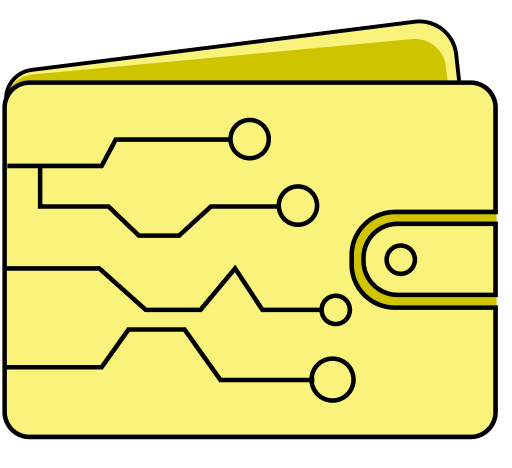Wallet import format

Wallet Import Format (WIF, also known as Wallet Export Format) is a way of encoding a private ECDSA key so as to make it easier to copy.
A testing suite is available for encoding and decoding of WIF at: http://gobittest.appspot.com/PrivateKey
Contents
Private key to WIF
1 – Take a private key
0C28FCA386C7A227600B2FE50B7CAE11EC86D3BF1FBE471BE89827E19D72AA1D
2 – Add a 0x80 byte in front of it for mainnet addresses or 0xef for Testnet addresses. Also add a 0x01 byte at the end if the private key will correspond to a compressed public key
800C28FCA386C7A227600B2FE50B7CAE11EC86D3BF1FBE471BE89827E19D72AA1D
3 – Perform SHA-256 hash on the extended key
8147786C4D15106333BF278D71DADAF1079EF2D2440A4DDE37D747DED5403592
4 – Perform SHA-256 hash on result of SHA-256 hash
507A5B8DFED0FC6FE8801743720CEDEC06AA5C6FCA72B07C49964492FB98A714
5 – Take the first 4 bytes of the second SHA-256 hash, this is the checksum[1]
507A5B8D
6 – Add the 4 checksum bytes from point 5 at the end of the extended key from point 2
800C28FCA386C7A227600B2FE50B7CAE11EC86D3BF1FBE471BE89827E19D72AA1D507A5B8D
7 – Convert the result from a byte string into a base58 string using Base58Check encoding. This is the Wallet Import Format
5HueCGU8rMjxEXxiPuD5BDku4MkFqeZyd4dZ1jvhTVqvbTLvyTJ
WIF to private key
1 – Take a Wallet Import Format string
5HueCGU8rMjxEXxiPuD5BDku4MkFqeZyd4dZ1jvhTVqvbTLvyTJ
2 – Convert it to a byte string using Base58Check encoding
800C28FCA386C7A227600B2FE50B7CAE11EC86D3BF1FBE471BE89827E19D72AA1D507A5B8D
3 – Drop the last 4 checksum bytes from the byte string
800C28FCA386C7A227600B2FE50B7CAE11EC86D3BF1FBE471BE89827E19D72AA1D
4 – Drop the first byte (it should be 0x80). If the private key corresponded to a compressed public key, also drop the last byte (it should be 0x01). If it corresponded to a compressed public key, the WIF string will have started with K or L instead of 5 (or c instead of 9 on testnet). This is the private key[2].
0C28FCA386C7A227600B2FE50B7CAE11EC86D3BF1FBE471BE89827E19D72AA1D
WIF checksum checking
1 – Take the Wallet Import Format string
5HueCGU8rMjxEXxiPuD5BDku4MkFqeZyd4dZ1jvhTVqvbTLvyTJ
2 – Convert it to a byte string using
800C28FCA386C7A227600B2FE50B7CAE11EC86D3BF1FBE471BE89827E19D72AA1D507A5B8D
3 – Drop the last 4 checksum bytes from the byte string
800C28FCA386C7A227600B2FE50B7CAE11EC86D3BF1FBE471BE89827E19D72AA1D
3 – Perform SHA-256 hash on the shortened string
8147786C4D15106333BF278D71DADAF1079EF2D2440A4DDE37D747DED5403592
4 – Perform SHA-256 hash on result of SHA-256 hash
507A5B8DFED0FC6FE8801743720CEDEC06AA5C6FCA72B07C49964492FB98A714
5 – Take the first 4 bytes of the second SHA-256 hash, this is the checksum
507A5B8D
6 – Make sure it is the same, as the last 4 bytes from point 2
507A5B8D
7 – If they are, and the byte string from point 2 starts with 0x80 (0xef for testnet addresses), then there is no error.
External links
- https://en.bitcoin.it/wiki/Wallet_import_format
- Wallet Import Format – Bitcoin Glossary – Bitcoin.org
- GitHub – bitcoinjs/wif: Bitcoin Wallet Import Format JS
- Bitcointalk
- WIF private key Forum
See Also on BitcoinWiki
References
- ↑ Wallet Import Format – Bitcoin Forum BitcoinTalk
- ↑ Address – What roles of WIF(Wallet Import Format)? – Bitcoin Stack Exchange
|
|||||||||||














 Twitter
Twitter
 Telegram
Telegram
